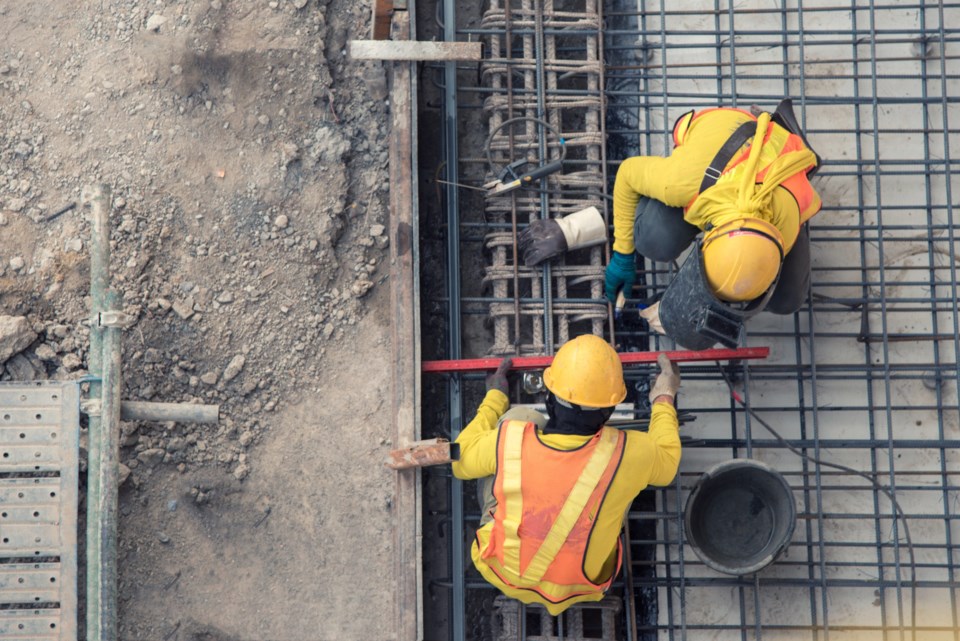While supply chain disruptions have eased for many contractors across B.C., finding skilled trades remains a challenge.
The perennial shortage of workers is set to reach new heights this year, according to the Independent Contractors and Businesses Association.
ICBA’s latest survey of members indicates that 80 per cent of contractors say they don’t have enough workers – up from 75 per cent last year. Moreover, 77 per cent of employers say a lack of workers is the single biggest challenge they face in 2023.
“The shortage of people is intensifying as Canada continues to go over a demographic cliff,” ICBA president Chris Gardner said in releasing the association’s annual Wage and Benefits Survey on Jan. 17. “B.C. construction companies are increasing pay and benefits, adopting new technology faster than ever, and recruiting everywhere they can – but they’re still falling short of filling positions.”
The situation is particularly acute in northern B.C., where major projects demand workers who just can’t be found.
Northern B.C. was the least impacted by the labour shortage last year, with 71 per cent of employers saying they couldn’t find enough workers – the lowest proportion of any region in the province.
This year, it’s at the top of the charts, with 92 per cent of companies saying they can’t find workers.
The lack of workers hits builders and suppliers alike. ICBA member Epscan Industries Ltd. of Fort St. John says demand for workers has outstripped training efforts. It opened an office in Grande Prairie, Alberta, two years ago and faces challenges hiring enough skilled workers for projects.
B.C. construction sites employ approximately 250,000 people. The shortage of skilled trades is causing wages to inch up. ICBA anticipates wages rising 6 per cent this year in response to strong demand.
That will fuel higher project costs, with 71 per cent of companies paying a premium for workers rather than turn down work. According to the ICBA survey, 59 per cent of companies are refusing work because of the labour shortage.
Approximately half of companies are delaying work or extending construction timelines to make better use of the workers they have.
Once again, projects in Northern B.C. will be most affected by these delays, as 75 per cent expect to field more work in 2023. This makes the region the busiest area of the province, and getting busier.
According to the latest edition of the BC Major Projects Inventory, 55 per cent of major projects tracked by the province are in Northern B.C.



